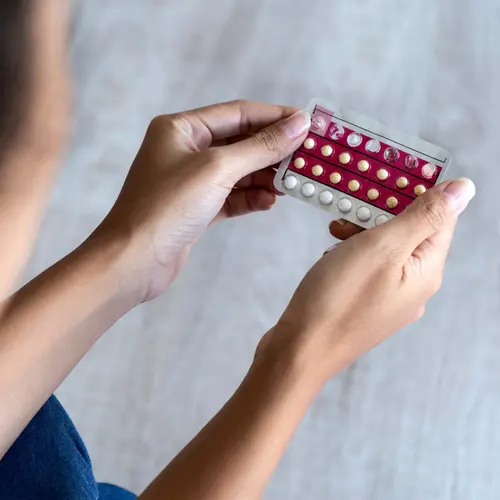You use birth control to keep yourself from getting pregnant. But you may wonder how safe your form of protection is for your body.
All methods of contraception are considered okay for healthy women. They're even safer than going through pregnancy and childbirth, says Colleen Krajewski, MD, an assistant professor of Obstetrics, Gynecology, and Reproductive Sciences at the University of Pittsburgh.
“I have had patients say they heard something on the Internet or TV about how unsafe birth control is, so they were uncomfortable using it -- and they wind up with an unplanned pregnancy, which is far riskier for your health,” she says.
Still, all forms of birth control have risks tied to them.
Estrogen-Containing Birth Control (Pill, Patch, and Ring)
Three kinds of birth control use estrogen: the combination pill, the patch, and the vaginal ring.
There's a slightly increased risk in blood clots with the methods containing estrogen, particularly from pills that contain drospirenone (these include the brands Syeda, Yasmin, and Yaz, among others).
“A woman’s general risk of blood clots is around 1 in 10,000; while on estrogen-containing birth control it rises to about 3 in 10,000-so while it does triple, it is still extremely low,” Krajewski says.
Because of the higher risk for blood clots, strokes, and heart attacks, estrogen-containing birth control is not recommended if you have other risk factors, including:
- You smoke and you're over age 35.
- You have a history of heart disease, deep vein thrombosis, or a pulmonary embolism.
- You'll be undergoing surgery that will keep you off your feet for a long time.
One other concern many women have about estrogen-containing birth control is whether it raises the risk of breast cancer. A study published in 2010 that followed more than 100,000 women found there was a very slight increase in risk for women on the triphasic type of pills -- the dose of estrogen in those changes in three phases over the month. But a later study that looked at women on 38 different formulations of birth control pills found no rise in risk with any of them.
One thing we do know for sure about birth control pills is that they lower your chances of getting ovarian and uterine cancer.
Some versions of the pill contain only progestin, which may be a better choice for some women. But you need to take them within the same 3-hour window each day for them to be effective.
The Shot
Depo-Provera is an injection you get once every 3 months to prevent a pregnancy. It contains the hormone progestin, but no estrogen.
The main risk linked to this method is a possible loss of bone density while you're using it. That leads to weaker bones. The FDA has required Depo-Provera to include a warning on the label about this being a potentially irreversible problem, especially for teenagers and young women.
But the American Congress of Obstetricians and Gynecologists reviewed the data, and its 2014 report found that any effect on bone density reverses after you stop using the shot.
IUD
An intrauterine device (IUD) is one of the most effective forms of birth control and it lasts for years and is easily reversible. But you can't have one placed in your uterus if you have an STD, had a recent pelvic infection, you're pregnant, or have had cancer of the cervix or uterus.
There are four different brands of IUDs in the U.S.
Kyleena, Liletta, Mirena, and Skyla contain progestin. They're considered safe unless you have liver disease, breast cancer, or a high risk for that type of cancer.
The copper IUD Paragard has no hormones. It's not an option f you have an allergy to copper or if you have Wilson's disease, a condition that causes your body to hold too much of that element. Side effects of the IUDs can include painful periods and spotting for the first few months of use. Over time this should improve. Some women who use them have headaches, breast tenderness, and other symptoms of PMS.
Rare but serious side effects from IUDs include:
- Infections from bacteria getting into the uterus when the device is inserted, or later on
- Punctures in the wall of the uterus
- Ovarian cysts
- Ectopic pregnancy
Implant
This contains only progestin, and it has few risks -- mainly the small possibility of an infection in the skin where it’s implanted. Some women have irregular bleeding for up to a year after it's inserted. Like the IUDs, it’s 99% effective in preventing pregnancy, which makes it an excellent option.
Barrier Methods (Condom, Diaphragm, Female Condom)
Male and female condoms are the only methods of birth control that can prevent STDs.
The risk with using a barrier method like a condom or diaphragm is that it won’t work. Some people don't always use them correctly, so their effectiveness rate is about 85%, compared with 99% for methods such as the IUD and implant, and 92% for the pill.
There are many things to think about when deciding which type of birth control is right for you. Talk to your doctor about your health history and lifestyle so you can make a good decision.

